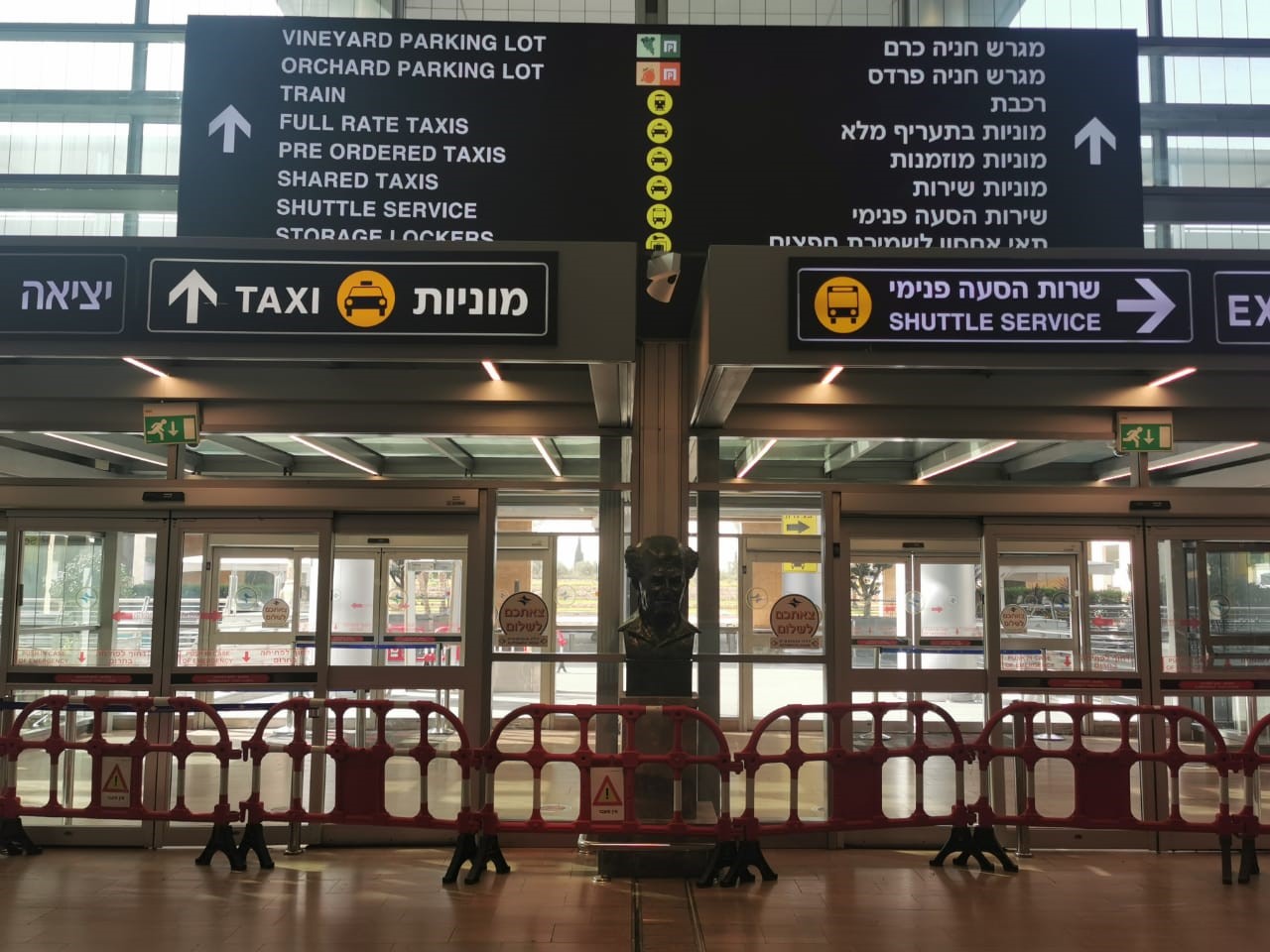
Featured Item

Ben Gurion Airport closure leaves many stranded
At 07:00 on Wednesday morning, 96-year-old Shulamit Klein passed away alone in hospital in Akko, Israel, with no visitors allowed and her care worker in quarantine. Klein’s daughter, Dalia Shalev, was desperate to get to Israel to at least sit shiva for her, but with Ben Gurion Airport closed, she has no hope of getting there.
“We cannot honour her the way she should be honoured,” says Shirley Cohen, Klein’s granddaughter. “The lack of closure makes the loss of a family matriarch devastating and heart breaking.
“If it weren’t for the current situation, my mother could have seen my grandmother at least one more time. In her last days, she was all alone with no one to comfort her.”
Countless individuals in South Africa, Israel, and several other countries have been left stuck or stranded as a result of the closure of the Tel Aviv airport which began at midnight on 25 January. Although initially scheduled to last for a week, Prime Minister Benjamin Netanyahu extended the closure until 7 February in a bid to prevent people infected with new coronavirus variants from entering the country. All inbound and outbound passenger flights are barred for Israelis and foreigners alike.
The move has been criticised for effectively trapping Israeli citizens abroad and at home. “Mothers went abroad to visit aging or ill parents and are stuck there,” wrote former Knesset member Dov Lipman. “There are new olim who were granted some vacation time who are now at risk of losing their jobs because they haven’t returned; there are people who have run out of their medication abroad and cannot access more.”
There are also those who are desperate to leave Israel for pressing reasons, Lipman said, including new immigrants who have parents dying abroad but cannot travel to see them.
“Some missed being with their parents when they died due to the draconian rule not allowing anyone to leave the country,” he wrote. “I am all for rules to fight the spread of COVID-19 mutations, but a country filled with new immigrants who have relatives and businesses abroad cannot impose these kinds of rules without a clear and simple method to allow for exceptions and emergencies.
“A country should never close its doors to its own citizens.”
Like Shalev, several South Africans have been frustrated by the impact the closure has had on their need to get into or out of Israel. Among them is 68-year-old Gideon Lapidus, who is desperate to get to Israel to be with his 96-year-old mother after his father passed away in September.
“My mom desperately needs me at this crucial time, but I’m stuck here in South Africa,” he told the SA Jewish Report. “I couldn’t get to Israel when my dad passed away. I’m the only child my mom has left, and we don’t know when we’ll get to see one another again.”
Lockdowns have frustrated every effort Lapidus has made to book flights, and the current closure of Ben Gurion is yet another obstacle to his arrangements.
“My dad is gone, and my mom has no one,” he says. “I’m not going on holiday, I’m going to help an elderly woman who is alone. This closure is absolutely ridiculous. I really think they need to give special permission to people who need to go. This Gestapo lockdown is unacceptable, and I’m sure I’m not the only one who feels this way.”
Having prepared to go on aliyah, Gwenda Glass’s plans were delayed when she suffered a stroke in October. Her daughter, who recently made aliyah, is supposed to come to South Africa to escort her mother to Israel, but neither of them are able to travel anywhere because of the airport closure.
“In the meantime, I’m stuck in a home and no one is allowed in or out,” says Glass. “I have no choice but to play it by ear and take the first opportunity that comes. I’ve packed up everything and should have gone already, but I’m still here four months later. It’s a big mess.”
Others are unable to return home after being in Israel. Liran Weltman spent 2020 in Israel on the MTA gap-year programme, but the flight that was supposed to bring her home this week has been cancelled.
“It’s a scary thought not being in control of when I can get home and see my family,” she says. “This past year has been full of uncertainty, and now there’s the uncertainty about whether or not I can get home.
“I have university preparation to do, I need to get my driver’s license and get settled in before university starts in March. At present, my flight is on 9 February 2021, but if the lockdown is extended, that means more time away from my family and home country, and Bnei Akiva needs to support us for a longer amount of time.”
Israel Centre Director Liat Amar Arran says all aliyah flights with El Al have been temporarily postponed and will be scheduled only when Ben Gurion’s reopening is confirmed.
“The last flight was on 25 January, and we had a crazy time making sure the 28 olim could get into Israel,” she says. “They left Johannesburg in the afternoon, arrived in Ethiopia, and took off for Israel at 23:55 that night. They were in the air in time, and were allowed in.
“It was too stressful to plan, so we’re hoping the next flight will be at the end of February. Now is not the time to make aliyah if you’re the sort of person who needs things confirmed in advance. Things change all the time.”
Telfed Chief Executive Dorron Kline says the only way travellers can enter Israel right now is via Frankfurt, an option that some desperate people are choosing.
“It’s a very big international airport that remains active, and people are using it to get into Israel,” he says. “It involves a complex procedure, applying for permission on special grounds. The situation isn’t expected to last very long, but because of the possibility that the closure could be extended, people are trying to apply for permission.
“What qualifies as essential travel? What reason is really good enough to get into Israel? It’s such a difficult question.”
For this reason, Israel needs to be open to discussing and evaluating each case according to its merits, says Kim Milner Kur. Kur is the founder of the “Community Circle Home SA” Facebook group which assists South Africans stranded abroad. She has been contacted by a few people affected by Israel’s airport closure.
“You have to know people’s backstories,” she says. “What seems essential to one person isn’t essential to another, but when you dig deeper and engage, you find out how essential it really is. All countries need to be open to discussing these reasons.
“We need to understand Israel’s approach while it’s vaccinating people, but we also need to find ways to come together and help. There’s power in a group, and people need to be heard. We need to help each other to find solutions.”










